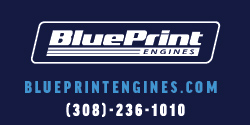Looking for some advice: I currently have an 8 3/4 rear end that I just put in a new 3.23 posi center section gear set-up. What is the best gear oil to put in it? I have heard to not use synthetic, to only use synthetic, to use any cheap gear oil with a separate additive . . . just trying to get some opinions!



You are using an out of date browser. It may not display this or other websites correctly.
You should upgrade or use an alternative browser.
You should upgrade or use an alternative browser.
'71 Barracuda Rear End
- Thread starter Claudia
- Start date
Adam
Well-Known Member
You will be fine with either Conventional or Synthetic. Use 75-90 wt. If you get chattering or popping around corners you will need the additive. You can siphon out 4-5 ozs of the gear lube to make room for the additive, or if its not too late you can drill a hole in the bottom of the housing and tap it with an 1/8 NPT allen head pipe plug. This way it will be flush, and you have easy draining. Beware, there is a ridge where the housing was welded together, outside and inside the housing exactly at the bottom center. You will have to grind down this ridge where the drain hole would be. (A cut off wheel works great for this) Or you can drill the hole slightly off to one side but the ridge will prevent some of the oil from draining.
Last edited:
js29
Well-Known Member
I would go with the synthetic and put in the additive now. the factory used the additive for A reason.
challenger6pak
Well-Known Member
- Joined
- Feb 27, 2011
- Messages
- 4,094
- Reaction score
- 924
I agree. The additive is for the sure grip to function properly.
Chryco Psycho
Well-Known Member
You do not want synthetic in there
Adam
Well-Known Member
Not trying to argue, and I have lots of respect for CP. Synthetic is usually a longer lasting oil, with better friction reduction, and stands up to heat better. It also comes as the factory fill in many new cars & trucks. Lots of opinions on the web, and lots of people use it without problems. Im sure people who have diff failure, or problems, would have the same problem with any type of oil they used. The cone style limited slip diff needs a friction modifier which reduces friction. That is why you may not need the additive with synthetic, unless you get chattering. Also some of the high end syn gear oils already have the additive in them. Money aside, a properly set up diff will be fine with either, in a street car.
Chryco Psycho
Well-Known Member
No arguement intended , I know non synthethic works fine , we have been doing this for years but I have been warned by diff suppliers etc by 3 or more sources not to run synthetic in older diffs .
I have no arguement that synthetic SHOULD lubricate better , stand up better / longer & reduce friction potentially increasing fuel milage etc but in my case I do not have the funds to run the experiment if it fails & I have to replace the gears & sure grip again down the road so I used non syn in my diff & my customers diffs also . Last thing I need is a customer coming back saying I did something wrong by simply using the wrong oil & sending the bill my way ! If you choose synthetic & have no issue awesome , if you have a problem this may be the cause .
I have no arguement that synthetic SHOULD lubricate better , stand up better / longer & reduce friction potentially increasing fuel milage etc but in my case I do not have the funds to run the experiment if it fails & I have to replace the gears & sure grip again down the road so I used non syn in my diff & my customers diffs also . Last thing I need is a customer coming back saying I did something wrong by simply using the wrong oil & sending the bill my way ! If you choose synthetic & have no issue awesome , if you have a problem this may be the cause .
Adam
Well-Known Member
That makes good sense. My take is that it will live with either type. Here is some info from Eaton, for both the Truetrac and their conventional posi:
EATON PERFORMANCE DIFFERENTIAL PRODUCT OWNER’S MANUAL !
A quality gear lube per the axle manufacturer's recommendation should be used. ® Detroit Truetrac
High quality mineral or synthetic gear lubes are required for use in Detroit Truetrac differentials.
Regardless of the lube type, always use a GL5 rated lube with the least amount of friction modifier.
Mineral lubes lacking friction modifiers (limited-slip additives) were historically recommended for all Truetrac applications because friction modifiers can slightly reduce the bias ratio (limited-slip aggressiveness) of Truetrac differentials. However, to address the continually increasing power outputs of modern powertrains, many vehicle manufacturers have switched to synthetic lubricants as a counter measure for increased axle temperatures and prolonged service intervals. In general, consult the vehicle owner's manual for the manufacturer's recommendations for lubrication type, weight and fill volume. This will ensure lube compatibility with the seal materials and bearings used in the axle. Eaton Performance technical support is available for any concerns in lube selection.
™ Eaton Posi Quality mineral or synthetic lube with sufficient friction modifier content will ensure the smoothest operating and longest life of your Eaton Posi performance differential.
Eaton recommends GM Dexron LS or Castrol Carbon Mod SAF (Synthetic Axle Fluid) for all
Posi applications. If using non-“LS” gear lube, add four ounces of General Motors “Limited Slip Axle Lubricant Additive” per one-and-a-half quarts of gear lube (GMP/N 88900330/10-4003).
Additional friction modifier additive may be used to reduce LSD plate “chatter,” but do not
exceed eight ounces per one-and-a-half quarts of lube. Other brands of additives may be used.
A friction modifier's purpose is to lower the staticcoefficient of friction (grabbing) within the clutch to
match the dynamic friction (sliding) in an effort to reduce the effects of friction transition (stick, slip,
chatter). Excessive amounts of a friction modifier can lower both friction values, resulting in reduction of bias ratio (performance) for plate-style limited-slip differentials such as the Eaton Posi. Many brand name gear lubes contain some limited-slip friction modifier in their formulation. If you use such a lube, additional friction modifier additives should be used sparingly to avoid accidental over-saturation resulting in performance loss.
24 EATON PERFORMANCE DIFFERENTIAL PRODUCT OWNER’S MANUAL
EATON PERFORMANCE DIFFERENTIAL PRODUCT OWNER’S MANUAL !
A quality gear lube per the axle manufacturer's recommendation should be used. ® Detroit Truetrac
High quality mineral or synthetic gear lubes are required for use in Detroit Truetrac differentials.
Regardless of the lube type, always use a GL5 rated lube with the least amount of friction modifier.
Mineral lubes lacking friction modifiers (limited-slip additives) were historically recommended for all Truetrac applications because friction modifiers can slightly reduce the bias ratio (limited-slip aggressiveness) of Truetrac differentials. However, to address the continually increasing power outputs of modern powertrains, many vehicle manufacturers have switched to synthetic lubricants as a counter measure for increased axle temperatures and prolonged service intervals. In general, consult the vehicle owner's manual for the manufacturer's recommendations for lubrication type, weight and fill volume. This will ensure lube compatibility with the seal materials and bearings used in the axle. Eaton Performance technical support is available for any concerns in lube selection.
™ Eaton Posi Quality mineral or synthetic lube with sufficient friction modifier content will ensure the smoothest operating and longest life of your Eaton Posi performance differential.
Eaton recommends GM Dexron LS or Castrol Carbon Mod SAF (Synthetic Axle Fluid) for all
Posi applications. If using non-“LS” gear lube, add four ounces of General Motors “Limited Slip Axle Lubricant Additive” per one-and-a-half quarts of gear lube (GMP/N 88900330/10-4003).
Additional friction modifier additive may be used to reduce LSD plate “chatter,” but do not
exceed eight ounces per one-and-a-half quarts of lube. Other brands of additives may be used.
A friction modifier's purpose is to lower the staticcoefficient of friction (grabbing) within the clutch to
match the dynamic friction (sliding) in an effort to reduce the effects of friction transition (stick, slip,
chatter). Excessive amounts of a friction modifier can lower both friction values, resulting in reduction of bias ratio (performance) for plate-style limited-slip differentials such as the Eaton Posi. Many brand name gear lubes contain some limited-slip friction modifier in their formulation. If you use such a lube, additional friction modifier additives should be used sparingly to avoid accidental over-saturation resulting in performance loss.
24 EATON PERFORMANCE DIFFERENTIAL PRODUCT OWNER’S MANUAL
Similar threads
- Replies
- 18
- Views
- 934
- Replies
- 6
- Views
- 2K


















